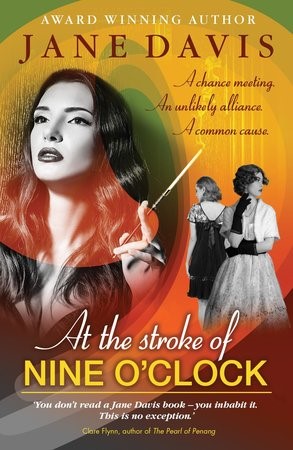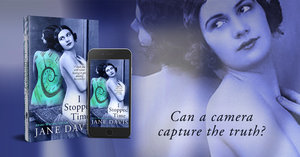Rosemary J Kind and I have several things in common.
We both write historical fiction.
In our latest releases we tackle the complicated theme of justice.
“Equal justice under law is not merely a caption on the facade of the Supreme Court building, it is perhaps the most inspiring ideal of our society. It is one of the ends for which our entire legal system exists…it is fundamental that justice should be the same, in substance and availability, without regard to economic status.”
Lewis Powell Jr.
And our views on the subject marry up: not everyone has equal access to the system…
Justice Be Damned by Rosemary J. Kind
Who can really obtain justice? In 1870 as today ‘the system’ heavily favoured middle class, middle aged white men. Fall outside of that bracket and all too often ‘the system’ is geared against you.
I grew up with a very deeply ingrained idea of justice being complete and utter fairness, no matter what sex, race, gender, political persuasion or religion. Sadly, the more I looked at the world the more I realised this ideal was not mirrored in everyday life.
Every culture, every societal grouping gives preference to those most like their idea of themselves. The problem really occurs when that becomes institutionalised in such a way that it is self-perpetuating and embedded as an ‘acceptable norm’.
That is the point when the reaction against the situation, of necessity, needs to be strongest in order to break it open. Eventually the response, when no one is listening to common sense and a call for justice, is protest. ‘Votes for Women’, ‘Black Lives Matter’, ‘Gay Pride’ – are all civil rights reactions to society’s injustices.
“Injustice anywhere is a threat to justice everywhere.”
Martin Luther King Jr.
One of the dangers, when justice is not achieved through reasonable means, is that the pendulum swings to the other extreme. In righting one wrong, we create another. Throughout history there have been revolutions, civil wars and international warfare, all caused by real or perceived injustice.
As a writer, it would not be right for me to tell the reader how they should think. Who am I to suppose my own thinking is correct? However, I do see it as my role to lead the reader to ask questions and challenge their preconceptions.
In Justice Be Damned, Ben, who died in the fire which was started deliberately, was black. Would the approach of the courts have been different if they had valued him more highly? Sarah was abused by her husband, as countless women are. Was it right that if she took the children away from that situation she would be in the wrong? Cecilia is qualified to practise law, but lives at a time and in a State which didn’t recognise women having that right. Miss Ellie owns land, has worked and paid taxes all her life and yet doesn’t have the right to vote. Molly wants to be able to get on farming her land in peace, but that doesn’t sit comfortably in a patriarchal society.
“Justice? — You get justice in the next world. In this one you have the law. ”
William Gaddis
I still believe in justice. I hear quotes like this one from Haile Selassie – “Throughout history, it has been the inaction of those who could have acted, the indifference of those who should have known better, the silence of the voice of justice when it mattered most, that has made it possible for evil to triumph.”—and it speaks to me. I cannot solve the world’s injustices on my own, but I can at the very least use stories to enable readers to think for themselves.

Blurb
1870 – William Dixon will not ignore injustice. The Reese brothers have been released from prison and no one has been made to pay for the life they took, nor the damage they caused to Cochrane’s Farm. As his sister, Molly and her husband Daniel set out to rebuild their farm, William takes the fight onto the political stage.
Whilst his wife, Cecilia, runs Dixon’s Attorneys’ office in Pierceton, William begins on the campaign trail. He may not have the backing of the establishment, but his oratory is outstanding. The Fifteenth Amendment has broadened the electorate, but politics is still a white male preserve. William sets out to speak for those who have no voice. He stands on a ticket of equality and fairness. Lauded by some and vilified by others, everyone has a view on William Dixon and some will go to great lengths to stop his progress.
How do you fight for justice against those whose interests it does not serve? William Dixon is about to find out.
NB: Although Justice Be Damned is part of a series, it can be read as a standalone novel.
Books2Read Universal Link: https://books2read.com/JusticeBeDamned
Goodreads link: https://www.goodreads.com/book/show/54520536-justice-be-damned
Social media links:
Website: www.rjkind.com
Facebook page: https://www.facebook.com/rjkind/
Twitter: https://twitter.com/therealalfiedog
Biography
Rosemary J. Kind writes because she has to. You could take almost anything away from her except her pen and paper. Failing to stop after the book that everyone has in them, she has gone on to publish books in both non-fiction and fiction, the latter including novels, humour, short stories and poetry. She also regularly produces magazine articles in a number of areas and writes regularly for the dog press.
As a child she was desolate when at the age of 10 her then teacher would not believe that her poem based on ‘Stig of the Dump’ was her own work and she stopped writing poetry for several years as a result. She was persuaded to continue by the invitation to earn a little extra pocket money by ‘assisting’ others to produce the required poems for English homework!
Always one to spot an opportunity, she started school newspapers and went on to begin providing paid copy to her local newspaper at the age of 16.
For twenty years she followed a traditional business career, before seeing the error of her ways and leaving it all behind to pursue her writing full-time.
She spends her life discussing her plots with the characters in her head and her faithful dogs, who always put the opposing arguments when there are choices to be made.
Always willing to take on challenges that sensible people regard as impossible, she set up the short story download site Alfie Dog Fiction which she ran for six years. During that time it grew to become one of the largest short story download sites in the world, representing over 300 authors and carrying over 1600 short stories. Her hobby is developing the Entlebucher Mountain Dog in the UK and when she brought her beloved Alfie back from Belgium he was only the tenth in the country.
She started writing Alfie’s Diary as an Internet blog the day Alfie arrived to live with her, intending to continue for a year or two. Fourteen years later it goes from strength to strength and has been repeatedly named as one of the top ten dog blogs in the UK.
For more details about the author please visit her website at www.rjkind.co.uk For more details about her dog then you’re better off visiting www.alfiedog.me.uk

At the Stroke of Nine O’Clock
For the last couple of years, while writing a novel that explores the plight of Ruth Ellis, a mother of two, and the last woman in Great Britain to be hanged, it seems only right that I spent a lot of time thinking about justice, both with a small j and a large J.
Justice with a small j is something we all have a strong sense of as children. I use the phrase ‘It’s not fair’ in the novel, primarily because it’s something I can hear myself repeating, just as I can still hear my mother’s response: ‘Life isn’t fair’, a reply any child would find hard to swallow.
The world I grew up in was closer to Ruth Ellis’s world than the world of. Punishment at school was physical (having a blackboard rubber thrown at you, being hit on the head with a Bible, or being sent to the headmaster). My partner and I come from different ends of the country but we can both recall that, if someone ‘told tales’ on a classmate, the guilty party would be punished, but then the person who had told tales received the exact same punishment. No adult was going to side with you.
Despite this, I still clung to the belief that things would be different in a court of law. Everyone is entitled to justice with a large J. A fair trial – at least, that’s what we’re told. The reality seems to be that the courtroom is a cross between a theatre and a circus. Speeches are carefully rehearsed. Ideas are planted and if no one contradicts them (and sometimes even if they do) they grow shoots. And witnesses may have information that has a strong bearing on the case, but if they aren’t asked a relevant question they must keep it to themselves.
Women, as we know, are far more likely to be victims than killers. (Arguably, the two are not mutually exclusive.) But when they do kill, the law seems at a loss to know how to deal with them.
“Women who are violent are monstorised by the system.”
Harriet Wistrich, human rights lawyer
Unlike their male counterparts, women who kill they tend to know their victims. Statistics also show that women kill for very different reasons than men. Either they feel threatened, or carry out what they believe to be an act of mercy. In Ruth’s case, driven to the edge of despair, she took a gun, tracked her errant racing-boy lover down to a public house in Hampstead, and shot him in cold blood. The reasons why have been the point of discussion ever since.
Ruth Ellis’s case is often cited as an example of a miscarriage of justice. I beg to differ. Given that in 1955 the only defence to murder was provocation, given that Ruth had handed herself in and admitted her guilt, given that she didn’t want certain facts to be revealed (that her ‘other lover’ Desmond Cussen gave her the gun that she used to shoot David Blakely, and her medical history, being two examples), how she told the courtroom that she had a peculiar idea that she had wanted to kill David Blakely, and the directions the judge gave to the jury, I struggle to see how they could have arrived at a different verdict.
At the same time, there is no doubt in my mind that Ruth was pre-judged. Her sex, her looks, the fact that her lifestyle was considered to be immoral (having two lovers while her divorce was not yet finalised, at a time when 73% of women polled said they thought sex outside marriage was wrong). Shouts of ‘common tart’ were heard as she entered court number one at the Old Bailey, where people had paid upwards of £30 for a seat in the public gallery. And for these very same reasons, I think the state decided to make an example of her.
Why? Because in the summer of 1955 not one but two women were sentenced to hang. Ruth’s executioner was also supposed to have had an appointment with a Mrs Sarah Lloyd (married, middle-aged, teenage daughter) who’d been convicted of beating her 86-year-old neighbour to death with a spade. Sarah’s Lloyd’s case attracted virtually no publicity – the Secretary of State was under no pressure from the public to grant her a reprieve, and yet that’s exactly what he did. Was Ruth Ellis’s crime any worse than Sarah Lloyd’s? No (unless we consider the life of a 25-year-old man to be more valuable than the life of an 86-year-old woman). For Ruth, it was her failure to meet standards of conventional morality that proved fatal.
“The traditional female role is a nurturer, not a murderer. Extreme violence is far more alien to females than to males.”
James Alan Fox criminologist
It is often argued that had the partial defence of diminished responsibility been available, Ruth would have been convicted of the lesser charge of manslaughter. To explore how she might have been treated in twenty-first century Britain, we must find a ‘similar’ case – one in which a woman has been driven to breaking point. The case of Sally Challen (2010/11) offers a number a parallels. (1) Like Ruth’s, Sally’ story made scintillating headlines. Middle-aged woman in middle-class Surrey bludgeons husband to death. (2) Like Ruth, Sally took the weapon – a hammer – to her former marital home (she and her husband had separated), suggesting that her actions were pre-meditated. (3) She attacked an unarmed man. (4) She was portrayed in court as a jealous woman out for revenge.

But despite the availability of diminished responsibility as a defence, Sally Challen was convicted of murder. Once again, the law failed to get to the truth. When Sally’s brothers, aware that their sister had suffered at Richard Challen’s hands (albeit that they didn’t know the extent of it), challenged why the matter of their brother-in-law’s behaviour wasn’t raised, they were told, ‘Speaking ill of the dead doesn’t go down well with the jury’, a sentiment echoed by the Crown Prosecution Service’s representative: ‘It’s not Mr Challen who’s on trial. The fact that someone was incredibly cruel and abusive towards their partner is not on its own a defence to murder.’
“The law doesn’t work well for women in relation to issues of violence. If a woman fights back, they are often punished more severely than a man that’s violent.”
Harriet Wistrich, human rights lawyer
That an appeal will be allowed is by no means guaranteed. The court must be satisfied that some substantial new evidence has come to light. The fact that evidence that had been available hadn’t been presented at trial wouldn’t be a good enough reason. Sally Challen’s case rested entirely on whether the court would accept new medical evidence suggesting that, at the time she killed her husband, she’d been suffering from an undiagnosed mental disorder. Justice for Women fought for six long years on Sally’s behalf. Finally the courts accepted that her husband’s coercive control (behaviour that was criminalised in 2015) had amplified the disorder, providing the missing explanation for what appeared to be a ‘bizarre act, out of the blue’. Having already served an appropriate term for the lesser offence of manslaughter, Sally Challen walked free.
At the Stroke of Nine O’Clock is available as an eBook and will be released as a paperback on 28 August. The Universal Link is https://books2read.com/u/brWppZ
Blurb
London 1949. The lives of three very different women are about to collide.
Like most working-class daughters, Caroline Wilby is expected to help support her family. Alone in a strange city, she must grab any opportunity that comes her way. Even if that means putting herself in danger.
Star of the silver screen, Ursula Delancy, has just been abandoned by the man she left her husband for. Already hounded by the press, it won’t be long before she’s making headlines for all the wrong reasons.
Patrice Hawtree was once the most photographed debutante of her generation. Now childless and trapped in a loveless marriage, her plans to secure the future of her ancient family home are about to be jeopardised by her husband’s gambling addiction.
Each believes she has already lost in life, not knowing how far she still has to fall.
Six years later, one cause will unite them: when a young woman commits a crime of passion and is condemned to hang, remaining silent isn’t an option.
“Why do I feel an affinity with Ruth Ellis? I know how certain facts can be presented in such a way that there is no way to defend yourself. Not without hurting those you love.”
Books2Read Universal Link: https://books2read.com/u/brWppZ
Goodreads link https://www.goodreads.com/book/show/53955188-at-the-stroke-of-nine-o-clock
To have future posts delivered directly to your in-box, visit the sidebar on the right and subscribe to my blog, or to find out about new releases, competitions and freebies, subscribe to my newsletter and I will send you a free copy of my novel, I Stopped Time, as a thank you.
While I have your attention, can I please draw your attention to my updated Privacy Policy. (You may have noticed, they’re all the rage.) I hope this will reassure you that I take your privacy seriously.
Remember, if you enjoyed this post please share it.
If you have subscribed to my blog but no longer wish to receive these posts, simply reply with the subject-line ‘UNSUBSCRIBE’ and I will delete you from my list.



